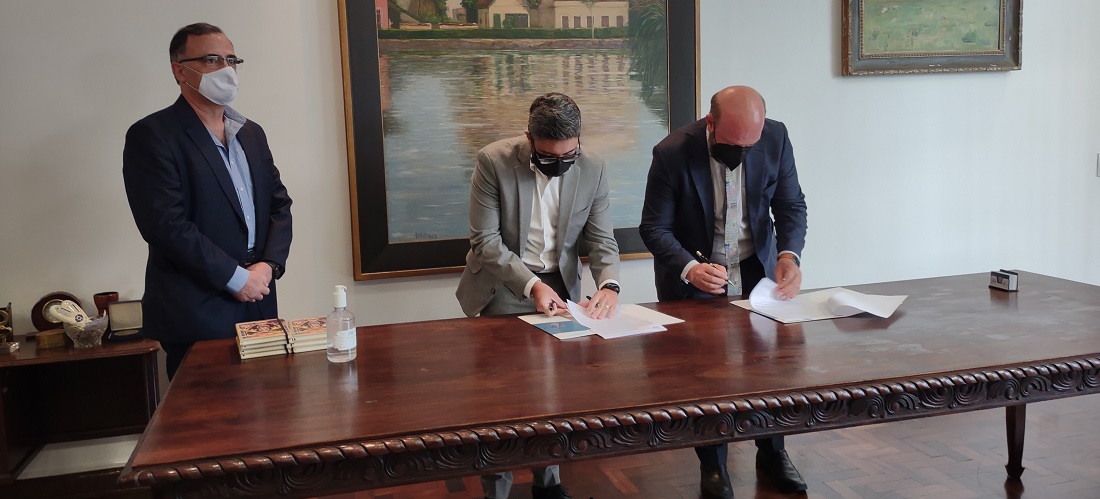
Portos do Paraná and UFPR will monitor Serra do Mar sediments
Feb, 15, 2022 Posted by Gabriel MalheirosWeek 202207
Beginning in March, Portos do Paraná will monitor the sediments that descend with the rain and silt up the bays of Antonina and Paranaguá at eight points on the Serra do Mar’s slopes. The partnership between the public company and the Federal University of Paraná (UFPR) is unprecedented, intending to provide data for future harm reduction projects.
The researchers will analyze the amount and type of material that reaches the sea. The goal is to reduce the need for maintenance dredging in Paraná’s ports, preserve the environment, and provide new revenue streams for landowners in degraded areas.
“[Through this partnership] we want to gather academic evidence to help us optimize the recovery of affected areas, yielding gain both in terms of port operations and the environment,” said Luiz Fernando Garcia, president of Portos do Paraná.
Professor Ricardo Marcelo Fonseca, UFPR’s dean, claims that the project represents gains for all parties. “The University possesses the expertise in science and the commitment to innovation and long-term sustainability that Portos do Paraná needs to provide an increasingly better service. Simultaneously, this investment returns to the University in terms of research, teaching, and extension opportunities,” he said.
PRAD:
The study is part of the Degraded Areas Recovery Program (PRAD). “We will install eight monitoring plots at various points and conduct a few assessments over the exposed soil and forest at an advanced stage. The goal is to measure how much sediment comes out of these slopes over the course of 28 months and estimate the number of tons that reach the Paranaguá estuary each year,” explains Professor Eduardo Vedor de Paula the project’s general coordinator.
-
Ports and Terminals
Dec, 06, 2024
0
Paraná Ports’ Infrastructure Projects Impress ANTAQ Delegation
-
Economy
Jun, 07, 2023
0
Argentina’s new import system shakes Brazilian exports
-
Other Logistics
Nov, 07, 2023
0
Santos City Calls For Studies on Export Processing Zones Implementation
-
Ports and Terminals
Aug, 21, 2024
0
Argentina quarantines grains ship over suspected mpox case

